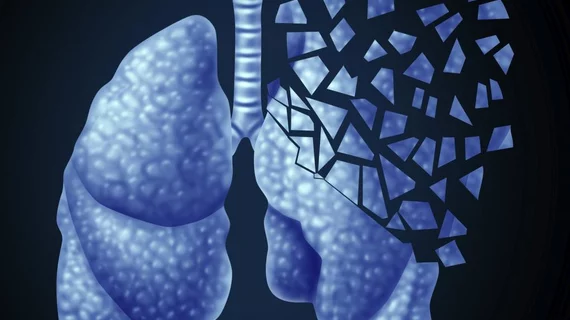$1.5M grant to fund AI-focused lung cancer research
A lung cancer researcher from Dartmouth College has received a $1.5 million grant from the National Cancer Institute to build and validate machine leaning approaches to develop better, more personalized cancer treatments.
The four-year grant recipient will specifically focus on non-small cell lung cancer (NSCLC), which accounts for 90% of lung cancer cases, and most of these patients develop resistance to their targeted treatments within the first year of treatments for an unknown reason. Researchers do know that somatic mutations impact the sensitivity of these patients to various drug treatments and are a critical component in choosing the best targeted therapies.
However, the methods to find the best treatments are in need of improvement.
"Currently, there is no computational method to link information from medical records to somatic mutations and targeted therapy responses," Saeed Hassanpour, PhD, computer scientist at Dartmouth's Norris Cotton Cancer Center and recipient of the grant, said in a prepared statement.
Hassanpour has previously published research focused in AI in healthcare, and specifically cancer treatment, finding a deep neural network can grade tumor patterns and lung adenocarcinoma subtypes as well as a trained pathologist. He hopes machine learning can show “relationships between clinical and pathologic findings, patient genetic profiles and drug resistance” to improve targeted treatments, according to the announcement.
"In precision cancer care, even identifying the high likelihood of resistance to a targeted therapy has important implications on the choice of the 'best' treatment strategy for NSCLC patients and their responsiveness,” Hassanpour said.
Hassanpour and his team will build and validate machine learning approaches to extract information and identify significant connections that can be used to identify mutations in patients that may resist targeted therapies. The relationships will reveal more about how these types of tumors develop and respond to treatment.
“Our overall objective is to use pathology reports of NSCLC tumors and available data from electronic medical records to build computational models for identifying NSCLC patients with clinically-actionable somatic mutations and predicting their responses to targeted therapies," Hassanpour said. "We think that pathological findings of NSCLC cells and tissues, in combination with relevant information in medical records, such as medical and family history, demographics and smoking status, will be reliable indicators to achieve this objective."

